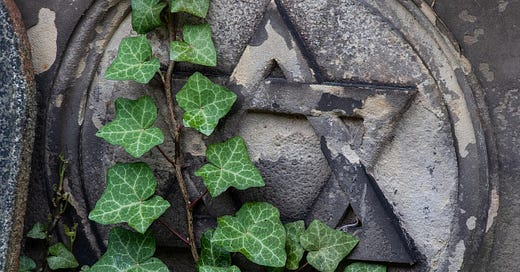Many of us are taught to believe that envy is an ugly thing, that we should suppress feelings of envy because they are rooted in a kind of competitive, covetous ugliness. What if, however, there were an envy that was rooted in something good, something nearly pure, something truly worthy of admiration, even if it were not without complexity. Would that kind of envy be ok? For a whole host of reasons, I’ve convinced myself that the answer can—and in fact for me at least, needs to be—yes.
The world these last couple of years has been brutal. From October 7th onward, being a Jew in America has become an increasingly perilous thing. Folks have been loud and proud with their vocal and physical Jew hatred, hiding behind “it’s only Zionists we hate” when called out. That lie has been repeated so often that some folks actually believe it. And that’s a very dangerous thing.
My worst moments have not been ones of physical fear. I’ve been living under the threat of Jew hatred for so long that it’s like breathing. Extra security at Jewish institutions has been a thing for decades, not for years, so nothing new under the sun there. The only change might be the frequency of seeing the anti-terrorism cops and their huge guns outside those institutions slightly more often. No, my worst moments are the tiny personal ones related to my kids. When I told my son to consider tucking in the Magen David necklace I’d only recently bought for him in Israel. Or when I try to get my daughter not to talk about Middle East or even domestic politics in public. Those moments of censoring feel gut wrenching to me, a failure on my part to give my children a world of safety, of security, of being able to embrace who they are wherever they happen to be.
What has surprised me has been the one space in my life where the hesitations of being a public Jew don’t hit me at all. And that space is anywhere I find myself with my autistic son.
Noah will periodically and for no apparent reason declare, “We’re Jewish.” More recently I heard, “We’re not Christian.” “Why, Noah?” “Because we don’t celebrate Christmas.” On the subway, which I ride regularly with Noah to and from his program in Brooklyn, he will repeat these things at times, but more often he’ll engage me with, “On Chanukah, blow!” Which is his way of talking about blowing out the candles. To which I always reply, “Don’t blow!” And then I prompt him with, “Why shouldn’t you blow out the candles?” “Because it’s blowing out the blessings.” “And we don’t blow out blessings because blessings are good things,” I remind him.
That interchange happens really often. What changes is the holiday. It’s usually Chanukah, but it can also be Passover, Rosh Hashanah, or just “the Jewish holidays.” And this is not a whispered interchange. Noah is not a whisperer. He’s not a shouter either, but sometimes his voice can be a bit loud. Still, I never feel hesitant to engage with him this way, whether on a subway, a bus, or just out on the street. I never feel unsafe being Jewish with Noah. In fact, I feel somehow enveloped in something sacredly safe, like we are in a secure bubble that others cannot penetrate, even if they can hear us.
Noah’s public Jewishness is both a joy and a rebuke, though he intends it to be neither, I’m sure. He’s just being Noah. The joy is in having interchanges with him that while endlessly repetitive, are rooted in a happy and utterly unselfconscious embrace of identity. The rebuke is knowing how self-conscious I have become about being publicly Jewish, worrying quietly that people might be judging me just for wearing my Chai and/or Star of David necklaces, even though I’m sure many people have no idea what they are.
With Noah, my significantly disabled son, the man child for whom the world is in so many ways an impenetrable mystery, I feel secure, free to be Jewish me, a Jewish mom with my Jewish son. I envy his ease at being himself, though I know he experiences frustration and anger about a number of things, so I’m not papering over his challenges.
I’m just looking out at and living in a world full of staggering, soul-crushing Jew hatred, and feeling incalculable gratitude at having a child who feels none of those slings and arrows, who sees none, who hears none, who feels no compunction to respond to any that might even be sent his way. It is impossible not to envy someone who walks through a world of minefields and finds, everywhere he goes, an excuse to talk with his mom about not blowing out Jewish blessings.
Nina Mogilnik worked for decades in non-profit, government and philanthropy settings, doing work she believed did some good and no harm. She moved with her family from the suburbs to NYC after her autistic son graduated from high school at age 21. She continued to do some work remotely, but then realized that her real job needed to be (re) constructing a life for her son in his new home and city. She continues to write--as a blogger for The Times of Israel, for Medium, and occasionally for other publications. This is how she records/accounts for/shouts about/expresses and otherwise communicates the challenges and joys of living a complicated, sometimes heartbreaking, but always true, life.



